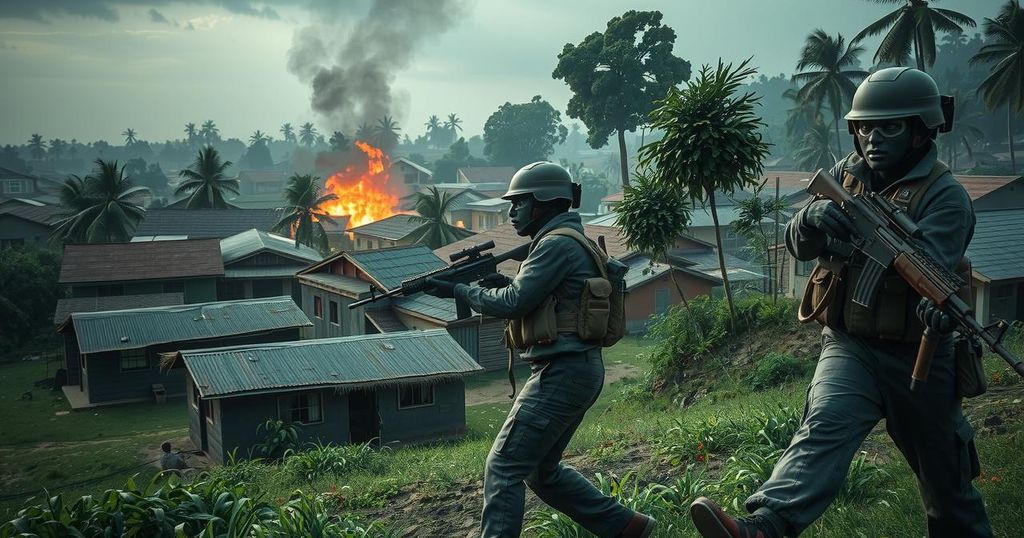Rwanda-backed M23 rebels have seized the town of Masisi in DR Congo, marking their second capture in two days in North Kivu. This resurgence of conflict has displaced many and raised humanitarian concerns. Diplomatic talks between DR Congo and Rwanda have stalled, with allegations of Rwanda’s military involvement and resource exploitation escalating tensions.
Rebel factions allied with Rwanda have successfully taken control of the town of Masisi in eastern Democratic Republic of Congo, amidst reports indicating this is the second town seized by the M23 group within just two days. The region of North Kivu has experienced significant turmoil as the M23 has expanded its territorial claims since 2021, displacing hundreds of thousands of residents. Despite attempts by Angola to mediate peace talks between Rwandan President Paul Kagame and Congolese President Félix Tshisekedi, previous discussions collapsed last month.
Alexis Bahunga, a member of the North Kivu provincial assembly, expressed his concerns saying, “It is with dismay that we learn of the capture of Masisi centre by the M23,” highlighting the dire humanitarian implications for the area. A resident recounted that M23 officials met with locals, asserting their intention to “liberate the country”. Masisi, the capital of its territory, is approximately 80 kilometers from Goma, which the M23 had also briefly occupied in 2012.
The M23’s swift advances included the recent capture of Katale, raising alarm among local authorities, as fears return regarding the group’s potential march on Goma, a city with a population near two million. Rwanda’s involvement, including acknowledged troop presence, has raised accusations of exploitation of the rich mineral deposits in the east of Congo for resources like gold and coltan used in electronics. Concerningly, DR Congo has initiated legal action against Apple for using these so-called “blood minerals”, thrusting the issue of resource exploitation back into the spotlight.
The current conflict in the eastern Democratic Republic of Congo is intricately linked to historical grievances, ethnic tensions, and resource struggles. Since its emergence in 2012, the M23 group has claimed to protect the Tutsi population who historically faced discrimination. However, their actions have been scrutinized as being motivated by resource acquisition rather than genuine humanitarian concerns. The region is rich in minerals critical for global industries, leading to ongoing violence and instability. Diplomatic efforts to resolve these tensions have been inconsistent, with previous attempts at negotiation failing to achieve lasting peace.
In summary, the M23’s recent capture of Masisi reflects the ongoing instability in the eastern Democratic Republic of Congo, fueled by historical ethnic conflicts and competition for valuable mineral resources. The humanitarian repercussions of these conflicts are severe, prompting local leaders to call for military support from the Congolese government. As accusations of foreign interference and resource exploitation persist, the situation remains critical, underscoring the urgent need for effective conflict resolution strategies.
Original Source: www.bbc.co.uk






